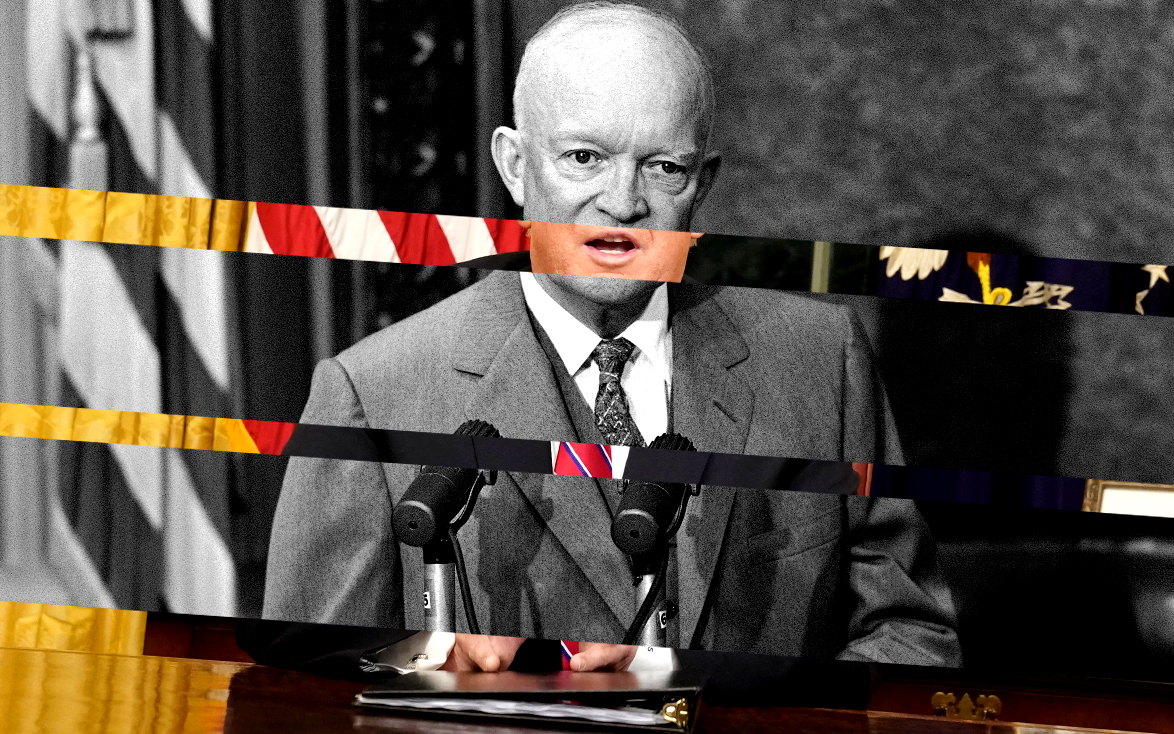America's word used to mean something. Then Trump became president.
How Trump is degrading America's foreign policy credibility


A free daily email with the biggest news stories of the day – and the best features from TheWeek.com
You are now subscribed
Your newsletter sign-up was successful
Last month, President Trump announced on Twitter that the U.S. would withdraw military support from Syria. The news took everyone — including leaders on Capitol Hill — by surprise. The Islamic State, the president said, had been defeated, and there was therefore no more reason to stay. In addition to whatever power vacuum might be left behind in Syria proper after the U.S. departs, Trump's unexpected withdrawal, and the disorganized manner in which it has been communicated by his administration, will likely have a more sinister side effect: It further degrades America's credibility. Our nation's word is becoming meaningless, and that's a dangerous prospect.
There are a number of recent international episodes that have chipped away at the United States' credibility and legitimacy as a negotiating partner. Certainly, the Syria withdrawal is one particularly dramatic example, especially considering how richly the administration bungled it. Two weeks after Trump's original announcement, National Security Adviser John Bolton seemed to contradict the president, indicating that U.S. troops would not leave Syria until ISIS is defeated and the protection of the U.S.-allied Kurds is ensured. Not five days later, the U.S. military announced that a deliberate withdrawal from Syria was underway.
Such chaos and apparent lack of strategy makes the U.S. appear disorganized and vulnerable, and may embolden adversaries to engage in violence against the U.S. or its partners. It's also incredibly confusing for our allies. Israel, for example, is now forced to adjust its own behavior in light of the unexpected U.S. about-face and find new ways to counter Syrian and Iranian aggression in the region.
The Week
Escape your echo chamber. Get the facts behind the news, plus analysis from multiple perspectives.

Sign up for The Week's Free Newsletters
From our morning news briefing to a weekly Good News Newsletter, get the best of The Week delivered directly to your inbox.
From our morning news briefing to a weekly Good News Newsletter, get the best of The Week delivered directly to your inbox.
For the Kurds, American abandonment is nothing new: George H.W. Bush was seen by some to have encouraged the Iraqi Kurds to rise up against Saddam Hussein in 1991, then failed to come to their aid when they were brutally targeted by the regime. Seeing history repeat itself, no one should blame them for viewing the United States as a duplicitous ally moving forward. We've broken their trust yet again.
Syria is far from the only place Trump has undermined the value of America's word. The Iranian and North Korean nuclear negotiations provide two more examples. President Obama signed the Joint Comprehensive Plan of Action (JCPOA) — or Iran nuclear deal for short — to limit Iran's potential to acquire nuclear weapons. The deal was far from perfect, but it did take important steps to scale back and foreclose key pathways to weapons production for the foreseeable future. While Trump was not duty-bound to the deal, given it was not a Senate-ratified treaty, intelligence communities, including those in the United States, have repeatedly indicated that Iran is abiding by the agreement. By withdrawing the U.S. unilaterally and without justification, Trump effectively signaled that when you shake hands with the United States, even if you uphold your end of the deal, you may still get the short end of the stick. In Iran's case, this could mean facing the prospect of war.
Perhaps more importantly, the story of the Iran nuclear agreement signaled to North Korea that deals with America are paper tigers. Trump spent 2017 threatening and escalating tensions with North Korea to the brink of fire and fury. But after a historic meeting with Kim Jong Un in Singapore in early 2018, Trump proclaimed that the crisis with North Korea was over. The two leaders "fell in love," he said. Important policy issues — efforts to achieve denuclearization, or even a meaningful pledge to work towards it — were quickly abandoned. This sudden turnaround and disregard for the facts on the ground suggests that, for this administration, meaningful commitment and meaningful compromise aren't necessary. It is the pageantry and the drama that matters.
Sometimes, there can be international political benefits to acting unpredictably and leaving enemies guessing. Indeed, dictating a stated and scheduled withdrawal from a conflict might encourage your enemies to dig in and wait you out, so creating ambiguity on your specific plans can be smart. But a lack of coordination with allies may increase the likelihood of battlefield accidents and lessen the chance that they will work alongside you in the future. While it is also possible that deliberate misrepresentation of your power or capabilities may yield bargaining advantages, it may also backfire, as it did for Saddam Hussein in the 2003 War in Iraq, when the United States went to war over non-existent nuclear weapons.
A free daily email with the biggest news stories of the day – and the best features from TheWeek.com
As the post-JCPOA world unfolds, Iran should be quite suspect of any negotiations the U.S. offers, given our commitment has recently been an empty one. North Korea should also put little stock in the threats or promises the U.S. makes. Despite the critical role the Kurds have played across the Middle East in recent decades by fighting alongside the West to counter fundamentalism and extremism in its many forms, they too would be justified in looking elsewhere for trustworthy allies who won't abandon them the moment it serves them.
Certainly, the foreign policy of the United States has always had a unilateral element, beginning with the founders, who argued that America should stay aloof from foreign affairs and resist the temptation to get bogged down overseas. But over time, the level of engagement grew, peaking in the post-war period. And such engagement has certainly seen hiccups previously: President Obama famously drew a "red line" in the Syrian conflict, pledging a strong response if the Assad regime deployed chemical weapons against civilians. When the weapons were deployed, there was no American response, and consequences of this failure to demonstrate credibility continue to reverberate.
But such episodes have been outliers, and not the norm. American leadership overseas has been steady and central to the last 70 years of international history. The Trump administration's recent actions stand to undermine the critical role the U.S. has played bringing about meaningful change in nearly every part of the world. If the U.S. continues to turn tail so abruptly, treating allies and negotiations so transactionally, there will be consequences. Our allies are losing faith in partnership with America, and our word of commitment, especially in negotiations and agreements, is dwindling in meaning. This damage will far outlast the current administration and will plague U.S. foreign policy for decades to come.
Rachel Whitlark is an Assistant Professor of International Affairs at the Georgia Institute of Technology. Her work focuses on international security and foreign-policy decision-making, specifically including nuclear proliferation, counter-proliferation, and military intervention. Her book explores the American and Israeli use of preventive military force as a counter-proliferation strategy against adversarial nuclear programs. Her work has appeared in International Studies Quarterly, Security Studies, The Washington Quarterly, The Monkey Cage, War on the Rocks, and the Bulletin of Atomic Scientists, among other publications.
-
 ‘Zero trimester’ influencers believe a healthy pregnancy is a choice
‘Zero trimester’ influencers believe a healthy pregnancy is a choiceThe Explainer Is prepping during the preconception period the answer for hopeful couples?
-
 AI surgical tools might be injuring patients
AI surgical tools might be injuring patientsUnder the Radar More than 1,300 AI-assisted medical devices have FDA approval
-
 9 products to jazz up your letters and cards
9 products to jazz up your letters and cardsThe Week Recommends Get the write stuff
-
 Epstein files topple law CEO, roil UK government
Epstein files topple law CEO, roil UK governmentSpeed Read Peter Mandelson, Britain’s former ambassador to the US, is caught up in the scandal
-
 Iran and US prepare to meet after skirmishes
Iran and US prepare to meet after skirmishesSpeed Read The incident comes amid heightened tensions in the Middle East
-
 Israel retrieves final hostage’s body from Gaza
Israel retrieves final hostage’s body from GazaSpeed Read The 24-year-old police officer was killed during the initial Hamas attack
-
 China’s Xi targets top general in growing purge
China’s Xi targets top general in growing purgeSpeed Read Zhang Youxia is being investigated over ‘grave violations’ of the law
-
 Panama and Canada are negotiating over a crucial copper mine
Panama and Canada are negotiating over a crucial copper mineIn the Spotlight Panama is set to make a final decision on the mine this summer
-
 Why Greenland’s natural resources are nearly impossible to mine
Why Greenland’s natural resources are nearly impossible to mineThe Explainer The country’s natural landscape makes the task extremely difficult
-
 Iran cuts internet as protests escalate
Iran cuts internet as protests escalateSpeed Reada Government buildings across the country have been set on fire
-
 US nabs ‘shadow’ tanker claimed by Russia
US nabs ‘shadow’ tanker claimed by RussiaSpeed Read The ship was one of two vessels seized by the US military
